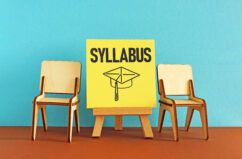
Engaging Students in Meaningful Learning Experiences
Two years ago, I was invited to deliver a course at a prestigious management school abroad. Though hesitant at first, I accepted the opportunity to

Two years ago, I was invited to deliver a course at a prestigious management school abroad. Though hesitant at first, I accepted the opportunity to

University faculty members are usually immersed in various tasks related to teaching, research, committees, and office hours. As a result, they rarely have time to

Every semester, a student hoping to “earn their desired grade” approaches me at the last minute, asking to make up all their missed assignments. I

Supporting biology courses for non-majors involves addressing the diverse needs of students with little intrinsic motivation to study the subject. Many take these courses as

I’ve tried a few different techniques for class discussions over the years, some that I’ve written about previously in Faculty Focus. In recent years, I’ve

Ever wonder why students don’t read the syllabus, despite the time and effort we put into creating it? It serves as a contract between instructors

In undergraduate classrooms, instructors encounter a variety of students with diverse backgrounds and different personalities. Since discussion-based learning, both in-person and virtual, remains important, teachers

Eighteen students crammed themselves into a stuffy classroom assigned for my first-year seminar course on a sunny day in September. With desk tops touching and

The first five minutes of every class in higher education holds far more significance than they might initially seem. These brief moments set the stage

Creating a trust-based classroom begins with an essential mindset: students are doing their best. When we approach teaching from this perspective, we move away from
Get exclusive access to programs, reports, podcast episodes, articles, and more!